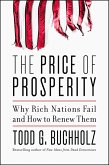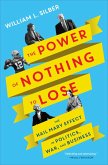In "The Conflict between Private Monopoly and Good Citizenship," John Graham Brooks meticulously examines the intricate dynamics between corporate monopolies and the concept of civic responsibility in early 20th-century America. Brooks employs a disciplined analytical prose that is rich in socio-economic context, drawing upon historical case studies to illuminate how private monopolies threaten not only economic fairness but also the very fabric of democratic citizenship. His exposition intertwines ethical considerations with the tangible consequences of corporate dominance, reflecting the Progressive Era's intellectual currents which sought to address the challenges of industrialization and the emerging corporate ethos. John Graham Brooks, known for his ardent advocacy for social reform, was deeply influenced by the key philosophical debates of his time. His exposure to the burgeoning monopolistic practices of the early 1900s, alongside the prevailing sentiments of social justice, compelled him to articulate a compelling critique that resonates with contemporary discussions on corporate ethics. Brooks's background as a public speaker and educator further enriched his perspectives, allowing him to articulate complex ideas clearly and effectively for a broader audience. This book is essential reading for anyone interested in the confluence of capitalism and civic responsibility. With its rigorous analysis and moral urgency, Brooks's work not only elucidates historical tensions but also provides critical insights into today's debates on corporate power and democratic values, making it a pertinent addition to the library of any engaged citizen.
Dieser Download kann aus rechtlichen Gründen nur mit Rechnungsadresse in A, B, BG, CY, CZ, D, DK, EW, E, FIN, F, GR, H, IRL, I, LT, L, LR, M, NL, PL, P, R, S, SLO, SK ausgeliefert werden.









